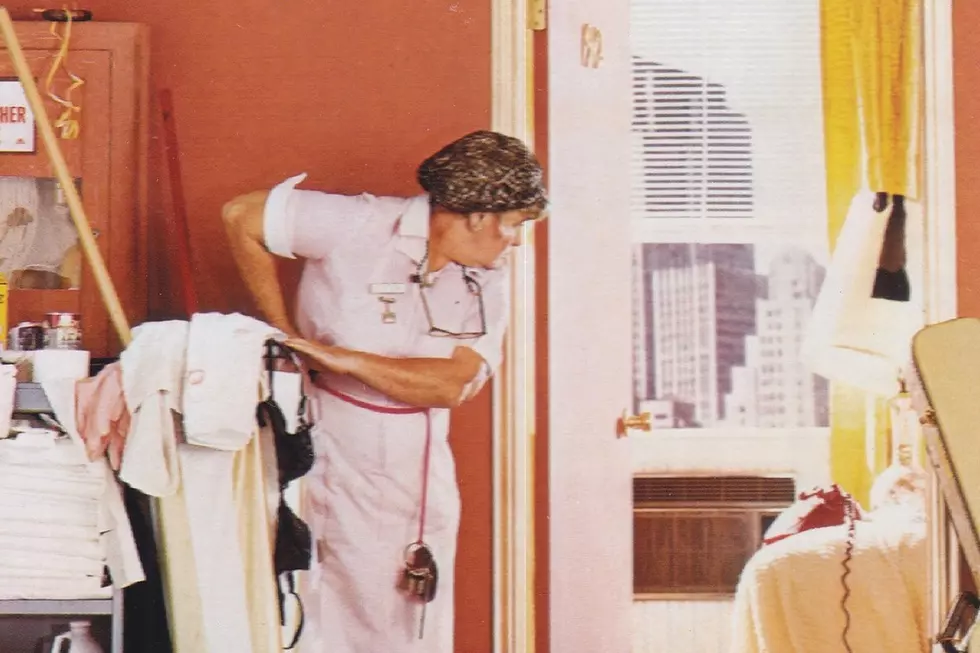
Why REO Speedwagon Needed More Time for ‘Good Trouble’
After years of tirelessly plugging away, REO Speedwagon finally topped the charts with their ninth album, 1980's Hi Infidelity — and they didn't waste time with their follow-up effort, returning just two years later with Good Trouble.
Yet as frontman Kevin Cronin told UCR's Matt Wardlaw, the quick turnaround definitely wasn't his idea. Still reeling from Hi Infidelity's incredible success, he felt he needed more time to process the band's new place in the rock 'n' roll firmament — but their longtime label, as Cronin put it, "didn’t want to lose momentum," and his bandmates agreed.
"I remember, we got to Sound City [studios] to start the record and the first night in the studio, we had kind of a band meeting in the office and I just wanted to go home. I really didn’t want to be there," said Cronin. "In retrospect, you know, let’s face it — I’m the singer, if I say “I’m not going to sing,” well then, the record’s not going to happen. Probably, if I had it to do over again, I would have taken a little more of a breather. It just was too soon."
Part of the problem facing REO at the time — as is the case with any artist coming off a No. 1 hit — is knowing whom to trust. Accustomed to waging an uphill battle to get his songs heard, Cronin was disoriented by the "people blowin’ smoke up our asses from every direction" while they wrote new material for the Good Trouble album.
Knocked off its creative axis, the little Midwestern band-turned-superstars couldn't help but be affected by its newfound fame. Still, even amid the chaos, REO's songwriting nucleus managed to deliver some songs that built on the band's previous work.
Watch REO Speedwagon Perform 'Keep the Fire Burnin"
The record led off with the Cronin composition "Keep the Fire Burnin'," which ended up serving as Good Trouble's first single — and another in the group's growing collection of Top 10 hits. Looking back, Cronin can appreciate the song now, but only after finally being allowed to finish it after the fact.
"I just wasn’t finished with the song, but we recorded it anyway. So I kind of took another look at it and changed a couple of chords. I didn’t even change the melody," said Cronin. "All of a sudden the song came into focus. Now I actually really love the song and I really enjoy playing it. Sometimes, I’ll play it on acoustic guitar during the set and I really love it now. The problem is that I wasn’t ready yet. So I kind of finished the songs hurriedly and I wish I would have had a chance to really sit on them a little bit longer."
In retrospect, it's hard to argue with Cronin's perspective. Released on June 11, 1982, Good Trouble performed respectably, peaking at No. 7 on the Billboard chart and going double platinum while spawning a pair of Top 40 singles ("Keep the Fire Burnin'" and the No. 26 "Sweet Time"), but it wasn't the all-out phenomenon its predecessor had been. It's easy to imagine that with a little extra time, the band might have been able to stockpile more songs — and ramp up demand for new product.
In the end, if Good Trouble failed to scale the heights achieved by its predecessor, it still solidified REO Speedwagon's status as a top-tier rock act — and when they returned two years later with their next album, Wheels Are Turnin', they'd enjoy one of the biggest hit singles of their career in "Can't Fight This Feeling." Looking back on the Trouble LP, Cronin still associates its birth with a difficult period in the band's history, but years of distance have allowed him to appreciate the music more.
"It would probably be good for me therapeutically to actually get the Good Trouble album out and give it a spin and maybe the experience wouldn’t be as traumatic now," Cronin said. "Every band goes through different phases. There were a couple of good songs on there, and a lot of people really like that record. But I was under duress during it and I did the best I could. I just wish that I would have done a little better."
Meet the New Boss: Rock's Replacement Singers
More From WWMJ Ellsworth Maine










